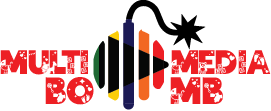Books
Book Review: North Korea: State of Paranoia by Paul French
Paul French has attempted to write about one of the world’s most secretive societies and one that has remained largely unknown to the general public apart from hearing of the fears frequently expressed in the media about the threat posed by its nuclear weapons. The task might seem almost impossible, but the author has gleaned data from a number of North Korea-watching research centres and the testimony of numerous defectors, including some formerly of high rank in the long-established regime of the three Kims: the founder, Kim Il-sung, his son, Kim Jong-il, and grandson, Kim Jong-un. The result is a fairly comprehensive, though rather dated, survey of the political and economic status of a failed state trapped by its ideology and the need to preserve the infallibility of its ruling dynasty.
The most enlightening part of this book is its analysis of Juche, a uniquely Korean blend of Marxist-Leninist ideology, with elements of the Thoughts of Chairman Mao, Confucianism, traditional Korean attributes, and attitudes derived from the liberation struggle against the Japanese. In practice, it serves to preserve the rule of the Kims and gives priority to the needs of the military. Juche has deeply permeated North Korean society and is the major factor preventing any serious political challenge to the status quo. The government has gone to great lengths to prevent knowledge of the prosperity of South Korea becoming available north of the 38th parallel, and has persuaded generation after generation of its citizens that their continuing poverty is in no way the fault of the rulers or their policies.
Read Only:
http://networks786.ovh/read-blog/56178_south-korea-travel-tips.html
http://networks786.ovh/read-blog/56179_tempting-staple-food-in-north-korea.html
http://networks786.ovh/read-blog/56181_daegu-warm-welcome-to-the-fashion-city-of-south-korea.html
http://networks786.ovh/read-blog/56182_in-north-korea-the-homework-game.html
Although the book first appeared in 2014, and was republished with revision in 2015, it gives the impression of being a decade older. Dates on references to internal affairs in North Korea do not appear later than 2003, although some US military deployments are mentioned up to 2013. This might be due to the inevitable delay in any facts emerging from within a closed society but some confirmation of this situation might have been helpful to the reader in defining the historical context.
According to the blurb on the back of the book, one reviewer found that ‘Paul French writes with wit, eloquence and rare clarity.’ This is a generous view of the author’s performance. The writing is in the style of official reporting and humour is not a feature but text filled with acronyms (about 120 are listed) and many foreign names will always struggle for fluency. The editing is incomplete, with remnants of the author’s draft revisions surviving in the published text. There seems to have been little reason to rush the book to print in view of the inevitable obsolescence of its content.
Read Only:
http://networks786.ovh/read-blog/56183_in-north-korea-the-guard-of-hoeryong.html
http://networks786.ovh/read-blog/56184_korea-a-kaleidoscope-of-wonders.html
http://networks786.ovh/read-blog/56185_places-to-go-in-songnim-north-korea.html
http://networks786.ovh/read-blog/56186_sinpo-a-famous-city-in-north-korea.html
http://networks786.ovh/read-blog/56187_seoul-south-korea-039-s-soul.html


